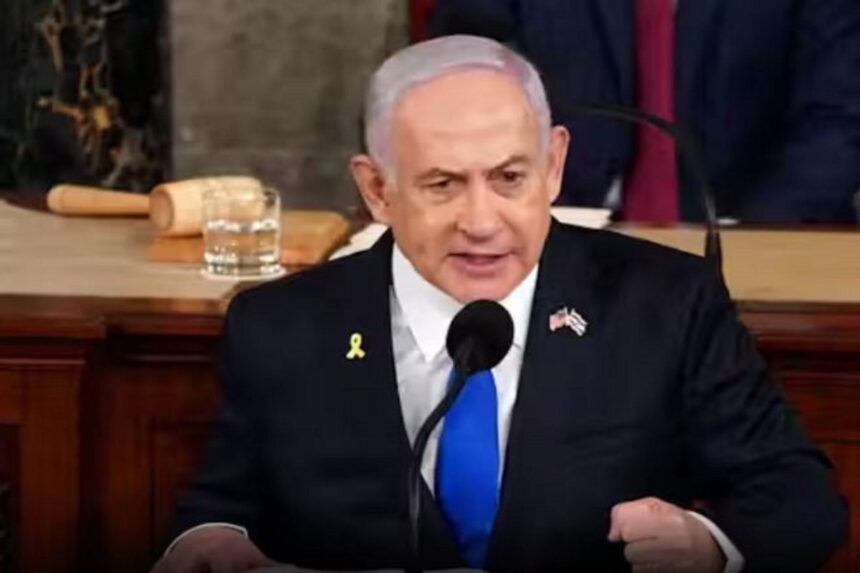A shocking attack on Israeli soccer fans in Amsterdam has brought a rapid response by Israel to protect its citizens from abroad. Following consultations with Dutch authorities, the government of Israel organized an evacuation plan in collaboration with El Al, Israel’s national airline, to bring traumatized Israelis back home. The swiftness of the action taken underlines how grave Israel is in seeing its nationals protected overseas, particularly in the face of the disturbing rise in antisemitic incidents across large swaths of Europe.
Growing Antisemitism Concerns: Israeli Government Requests Security Measures
Following Thursday’s violence, Netanyahu spoke to his counterpart, Dutch Prime Minister Dick Schoof, and he firmly demanded security from the Dutch in light of antisemitic violence against Israelis that is on the rise. He makes it clear that the Dutch government should take immediate action in providing proactive security for the nationals and also the living Jewish communities of the country. This request underlines the wider, growing concern over antisemitism and its consequences for the safety of Israelis and Jewish communities in Europe.
According to the reports, attacks in Amsterdam hurt at least 20 Israelis, some of whom had injuries that required treatment. Furthermore, it was reported that seven Israelis have not yet been able to be contacted since the incident, which has increased the agitation and worry felt among Israeli authorities and family members within Israel.
Initially, the Israeli Defense Forces planned to send a quick-action team to Amsterdam, with the hope of organizing a rescue operation. This move was, however, shelved after a reassessment; El Al was brought in to organize the rescue and secure a safe exit for the citizens of Israel back home. Meanwhile, the Israeli Foreign Ministry, to reinforce its support efforts, added more phone lines and staff to attend to the needs of Israelis.
Israel’s request from the Dutch government reflects a growing unease about antisemitic and anti-Israel sentiments, especially in regions where international meetings and public events could raise the ante of violence.
Netanyahu’s call to Prime Minister Schoof made it clear that the security of its citizens is one matter of overriding importance, and that timely interventions are needed as a way of preventing further incidents. Dutch authorities have agreed to review security arrangements and to strengthen their vigilance around gatherings that may attract anti-Israel agitators.
The Urgency of Israel’s Response: Protection of Nationals Abroad
The violence in Amsterdam sent shockwaves through the Israeli administration, mainly because it came in the wake of attacks by Hamas on October 7 this year, which re-ignited the security concerns for Jewish communities across the world.
Israeli President Isaac Herzog called the attack on Maccabi Tel Aviv soccer fans “one of the most alarming incidents in recent years against Jews.”. Herzog characterized the attacks as a “warning sign” to all countries that believe in democracy, adding that antisemitic and xenophobic violence requires immediate attention.
Herzog’s statement is a grim reminder of the past attacks on Jewish communities and calls for proactive security measures. He drew parallels between the attack on Maccabi Tel Aviv fans with previous violent incidents against Jewish communities, pointing to the risks of allowing antisemitism to spread unabated.
The Israeli government, in cooperation with its embassy in Amsterdam, is taking urgent security measures and is pursuing wider international cooperation about the prevention of such attacks in the future. Such expansion of the embassy means more resources and channels of communication; Israel gives priority to the protection of its nationals and to building partnerships in combating antisemitism at large internationally.
The sending-in of evacuation flights on Shabbat speaks volumes about how grave the situation is considered by the government of Israel on a day set aside for rest by the Jews. It is not just an El Al solution to the logistics of the situation, but an Israeli statement of commitment to its nationals, putting the safety and security of all above everything else. For many Israelis, that response implies reassurance and solidarity that their government will ensure their protection, even outside of the borders.
Dutch Prime Minister Condemns Attack
The attack on the Maccabi Tel Aviv fans has therefore raised the level of outrage and a strong response from the Dutch government. For instance, Prime Minister Dick Schoof addressed the incident by terming the “antisemitic” attacks as “unacceptable.” As such, he promised that the perpetrators would be hunted, tried, and ensured that justice was served. Such a statement by Schoof will be a critical gesture to both Israeli and Jewish communities in the Netherlands that the threat is very serious.
Videos of the intensity of these clashes then flooded social media as multiple scuffles broke out in the streets outside Amsterdam’s stadium. The footage shows people clashing violently, and chants and slogans with anti-Israel sentiments are audible.
These scenes have been condemned by one and all, with many calling for stricter security protocols and faster action against such hate-driven attacks. Days before the incident, Spanish media reported that a protest could happen outside the stadium directed at Israel’s soccer club and its fans; that also heightened concerns. As it seems, nothing was done to avoid such a development, which now is pointed to as the failure of preparations on behalf of the local authorities.
The violence was part of the disturbing trend of antisemitic incidents that have cropped up across Europe during the last few years and brings into growing concern European governments’ consistent and appropriate responses.
Hence, assurances from the Dutch government to pursue perpetrators and prosecute them made a lot of sense to the international community at large, which pursued the importance of accountability of perpetrators for such violent acts inspired by hate. With this strict posture, the Dutch want to show the entire world that such an act will not be tolerated within their borders and will strengthen the values of this country regarding being tolerant and inclusive.
Larger Security Implications for International Events
The recent incidents in Amsterdam have revived debate concerning security arrangements at public events, especially those dealing with international teams or groups with possibly polarized affiliations. Sports events and political tensions have long remained touchy matters; numerous clashes and ideological expressions have taken place in places such as arenas and stadiums.
In light of this incident, the government and event organizers might have to reconsider security for such events, especially when the events involve communities that might be targeted.
This incident has underlined the need for Israelis going abroad to be aware of the proper planning and precautionary measures when traveling abroad, especially during a period of high political and social tension.
Accordingly, the response of the government of Israel suggests that it would adopt an assertive stance vis-à-vis the host nations in coordinating security matters, especially where congregations are conspicuous. Many believe this is a necessary ingredient for the creation of a situation in which antisemitic and politically inspired attacks do not get further exacerbated.




